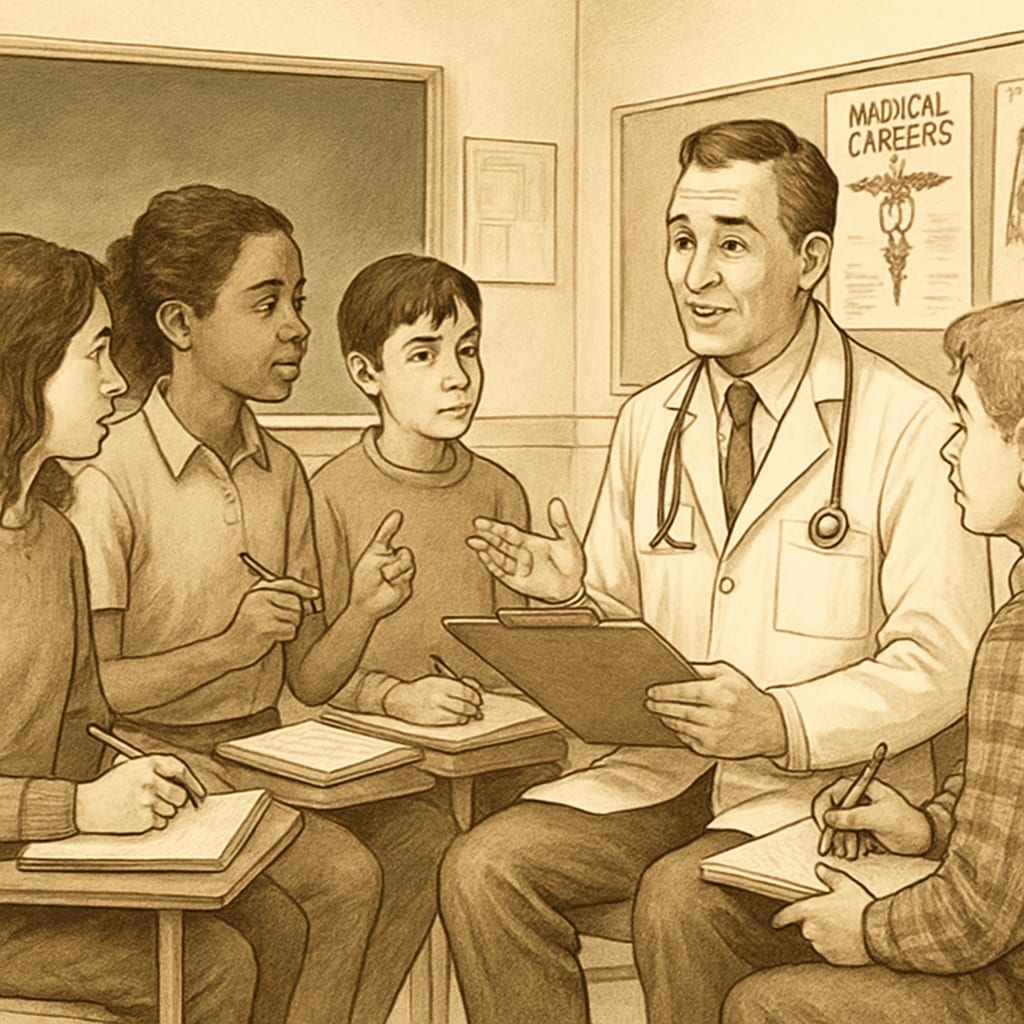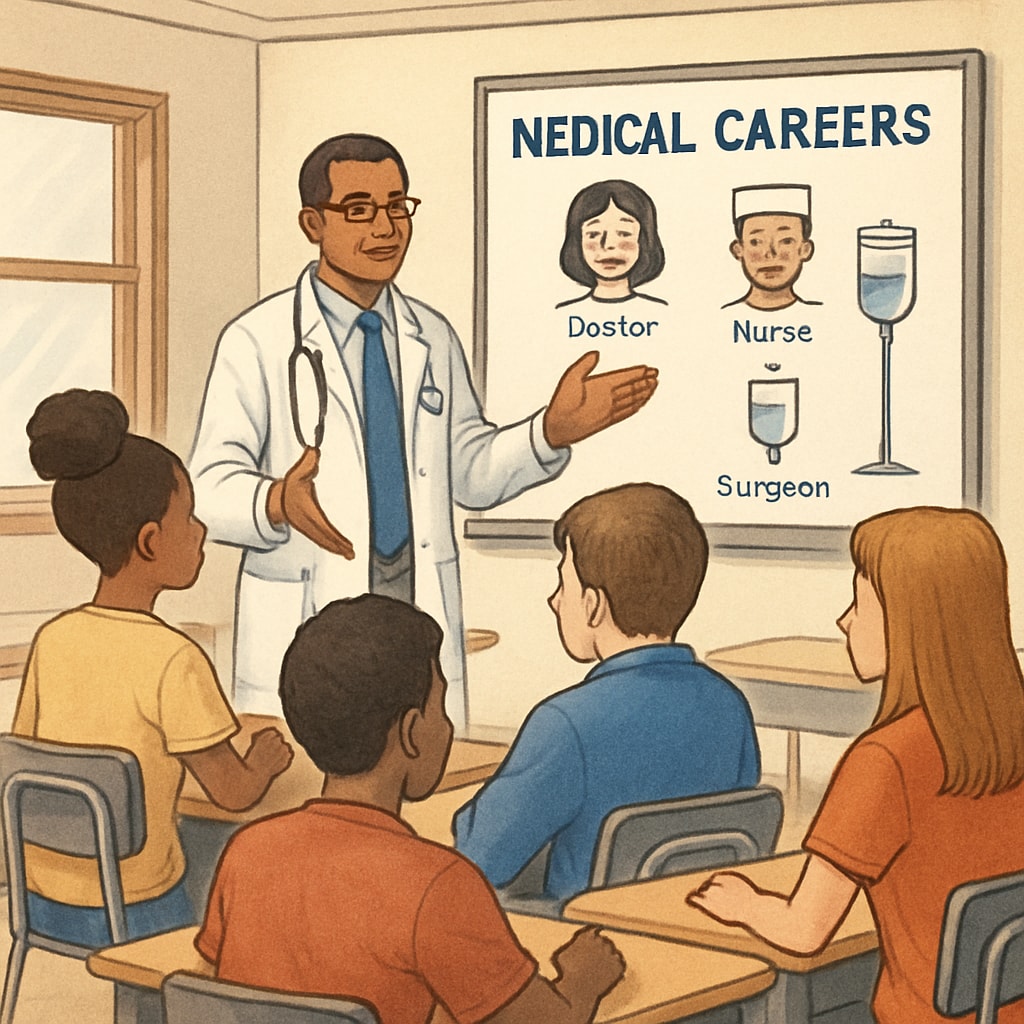Introducing students to the world of medicine through engaging activities like medical career interviews can be transformative. Such school projects not only bring the profession to life but also help students develop career awareness, refine their communication skills, and make informed decisions about their future. By interacting with healthcare professionals, students gain insights into the challenges and rewards of a medical career, paving the way for better career planning. This article outlines the importance of these projects, provides a detailed design framework, and offers tips for effective implementation.
The Importance of Medical Career Interview Projects in Schools
Exposing students to real-world professions, especially in fields as demanding as medicine, is crucial in K12 education. Medical career interview projects allow students to connect directly with doctors, gaining first-hand insights into their roles, responsibilities, and daily challenges. This helps demystify the profession and shows its human side. For example, students can learn about the diverse specialties within medicine, the long years of study required, and the emotional resilience needed to handle life-and-death situations.
In addition, these projects foster essential skills such as active listening, critical thinking, and professional communication. They also encourage students to ask questions about work-life balance, the impact of technology in healthcare, and the ethical dilemmas faced by medical professionals. As a result, students develop not just career awareness but also a nuanced understanding of what it takes to succeed in the medical field.

Designing a Successful Medical Career Interview Project
Setting up a medical career interview project requires careful planning to ensure its success. Below is a step-by-step framework for designing such a program:
- Define Objectives: Start by outlining the goals of the project. Are you aiming to introduce students to medical specialties, or are you focusing on broader career planning skills?
- Identify Participants: Collaborate with local healthcare professionals, hospitals, or medical schools to find doctors willing to participate.
- Prepare Students: Teach students how to conduct professional interviews. This includes crafting thoughtful questions, practicing active listening, and understanding the importance of etiquette.
- Conduct the Interviews: Arrange one-on-one or group interviews, either in person or virtually. Ensure students have enough time to explore key topics.
- Reflect and Share: After the interviews, ask students to reflect on their learning and share their insights through presentations, essays, or group discussions.
By following this structured approach, schools can ensure that students maximize the benefits of interacting with medical professionals.
Engaging Students and Doctors Effectively
To ensure meaningful interactions between students and doctors, both parties need to be well-prepared. Schools can achieve this by providing students with a list of sample questions covering a range of topics, such as:
- The educational journey and training required to become a doctor
- A typical day in the life of a medical professional
- Challenges and rewards of working in healthcare
- The role of technology and innovation in modern medicine
- Advice for students considering a career in medicine
Doctors, on the other hand, should be briefed on the project’s objectives and the age group of the students. This helps them tailor their responses and share relatable experiences. Additionally, schools can encourage students to write thank-you notes to the participating doctors, fostering a sense of gratitude and professionalism.

Conclusion: Empowering Future Medical Professionals
School projects involving interviews with doctors offer a unique opportunity for students to explore medical careers in depth. By bridging the gap between education and real-world experience, these initiatives inspire students to pursue their aspirations with clarity and confidence. In addition, they cultivate essential life skills that will benefit students in any career path they choose. For educators, parents, and healthcare professionals, investing in such projects is a step toward nurturing the next generation of medical leaders.
In summary, medical career interview projects are more than just an educational exercise; they are a gateway for students to understand and appreciate the complexities of the medical field. With proper planning and execution, these projects can leave a lasting impact on students’ career trajectories.
Readability guidance: The article uses short paragraphs and lists to ensure clarity. Transition words such as “for example,” “in addition,” and “as a result” are used throughout to improve flow. Passive voice and long sentences are minimized.


